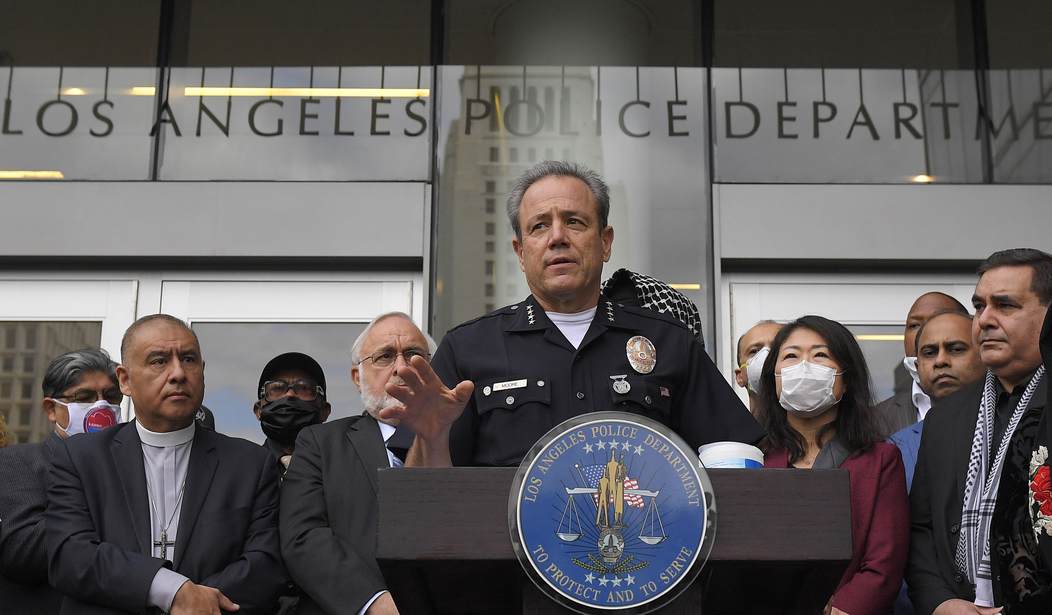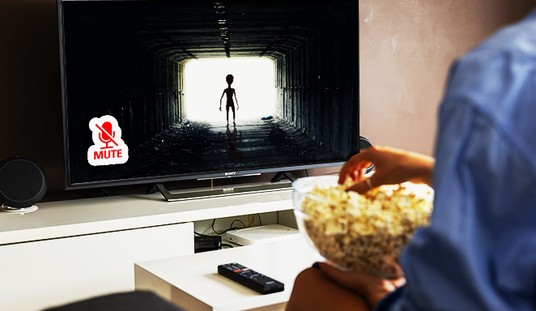The Black Lives Matter movement that really took hold across the country this year has been going in Los Angeles for a few years now, and as a result of their organizing efforts, they’ve elected a Soros-funded District Attorney and succeeded in having parts of their “People’s Budget” enacted through the spineless, sexual-assault encouraging Mayor Eric Garcetti. While the People’s Budget’s main call is to Defund the Police, that defunding results in a massive cash influx to their desired “non-profit” organizations.
LAPD Chief Michel Moore has announced exactly where the first round of budget cuts are going to hit, and sadly they won’t be hitting the BLM proponents hardest. According to the LA Times:
[T]he reshuffling will reduce the size of the vaunted but troubled Metropolitan Division, as well as cut the air support, robbery and homicide and gang and narcotics divisions. The department also will reduce desk hours at its stations, cut special deployments in popular areas such as Venice and Hollywood, and stop staffing teams that cover homelessness issues.
A total of 234 officers will move back into patrol. Station desks will be manned only during weekday hours. Victims of misdemeanor hit-and-run crashes and collisions with minor injuries will be advised to file a report online.
So, how does that work when an insurance company wants a copy of a police report? A source who works with various law enforcement agencies in the Los Angeles area noted that in Pomona the police have already stopped responding to minor-injury collisions and hit-and-run, and people are having a difficult time getting insurance companies to pay without an incident report. I’m definitely not one for over-policing, and do agree that a police officer’s time is better spent on other activities, but what if one of the drivers was drunk? Or high? Shouldn’t they be issued a citation and prevented from driving away? And how will officers know if they’re not responding?
Noting that violent crime has surged in the city this year Craig Lally, Los Angeles Police Protective League President, said:
“These cuts can’t come at a worse time, and our neighbors will be less safe. It’s going to be catastrophic,” he said. “There’s nothing good that’s going to come out of this, and it’s only going to get worse. This is just the tip of the iceberg.”
Of course, Melina Abdullah, founder of LA Black Lives Matter, believes the cuts don’t go far enough, and she hopes there are a lot more to come.
Alex Comisar, a spokesman for Garcetti, said the city is “reimagining” public safety along with community leaders, and Garcetti “trusts the LAPD’s ability to make the operational changes necessary to keep our city safe, and help us meet this moment in partnership with all Angelenos.”
But this “reimagining” will come at a huge price, one that anyone who has ever been involved in the criminal justice field or even who just has a brain can figure out. Despite what noted scholar Melina Abdullah thinks, policing isn’t easy. To achieve the goal of keeping the public safe from nefarious characters, officers must ensure that when they charge someone for a particular crime, that they gather the evidence necessary to prove each and every element of that crime beyond a reasonable doubt. The District Attorney’s office has investigators, sure, but their job is to prosecute with the evidence that’s gathered by law enforcement. Officers have to be well-versed in the elements of the innumerable “crimes” on the books in California, and over their careers many develop specialized skills to effectively solve complex cases. These cuts will lead to a massive loss of institutional expertise in crime-solving:
The LAPD said it will attempt to keep detectives and officers with unique skills working within their areas of expertise as the department reorganizes in response to current and anticipated budget cuts, though some officials said they worried about a loss of knowledge in handling certain delicate or complex cases.
One such group, the sexual assault unit at the Robbery Homicide Division, will be dissolved under initial reorganization plans, with its dozen detectives and one lieutenant reassigned. The unit was responsible for the investigations into former USC physician George Tyndall, movie producer Harvey Weinstein, and the adult film performer known as Ron Jeremy.
Chief Moore says that 350 sworn positions will be eliminated over the next year, and that they can’t come out of patrol.
“I can’t take those 350 people out of patrol, they would just absolutely decimate our patrol, staffing,” he said. “So we’re looking at our specialized areas. And some of them we’re downsizing and others we’re eliminating, if the work can be done by a general detective or a detective at an area level, or uniform officer at a station.”
I say, why not? The big beef BLM has is with what they claim is overpolicing in minority neighbors; if patrol officers are scarce in those areas they’ll get what they want. And, with fewer patrol officers on the streets, there are fewer opportunities for officer-involved shootings to occur. Why disband a unit that’s been extremely effective and even gets props from some of the very nonprofits that stand to benefit from the “defund” campaign?
“I hope it doesn’t have a negative effect,” said Yvette Lozano, chief programs and operations officer with Peace Over Violence, a non-profit in LA that advocates for survivor-victims of sexual and domestic violence.
The specialist detectives at RHD have had additional training and often many years of experience that helps them connect with crime victims and insure they feel safe in interviews and in court, Lozano said.
“My concern is that victims do not get discouraged and know they can still report assaults,” Lozano said. “I wonder if they will get the same response if there’s some serial rapist out there. Will the case be solved as quickly as it was with the dedicated unit at RHD?”
And a former federal prosecutor who served on the LA City Council from 2001-2009, Jack Weiss, said, “There must be some mistake,” when informed that the RHD’s sexual assault unit was going to be disbanded. He added that support for those types of units “has been universal for decades.”
In addition to the actual cuts/reassignments by the LAPD, expect the number of officer retirements to surge beyond what Moore expects and is planning for, and for an exodus of officers who can’t retire yet to other jurisdictions in California and beyond. A recent survey conducted by the LAPPL found that 9 out of 10 LAPD officers would retire today if they could, showing that morale is beyond rock bottom.
Keep the specialized units, Moore. Make patrol officers scarce. Give the people what they want.
(While you’re reading this, think about joining our VIP program. It gives you an ad-free experience and access to some unique content on RedState and its sister sites, Townhall, PJMedia, HotAir, and Twitchy. Plus, it helps us decrease the influence of Facebook, Twitter, and the thought police in media. Use code “JENNIFER” for a 25% discount.)















Join the conversation as a VIP Member